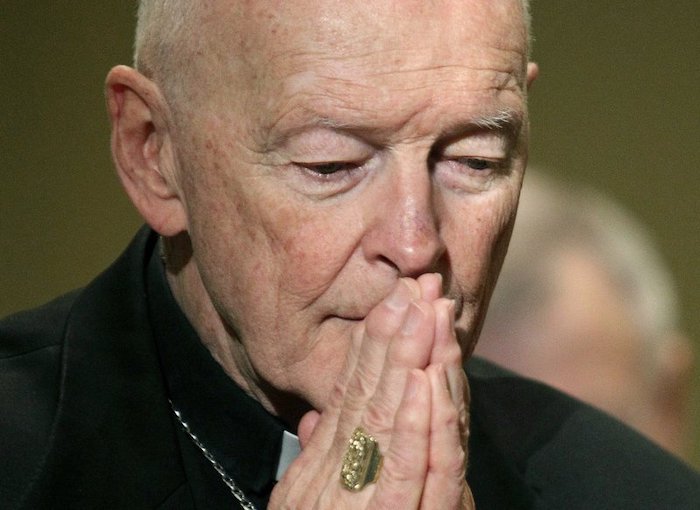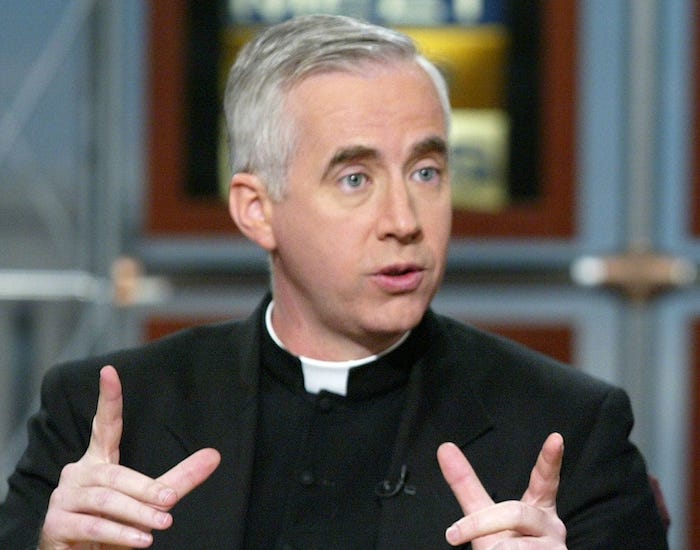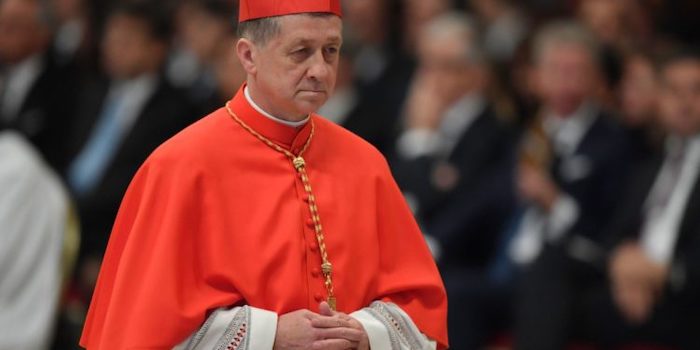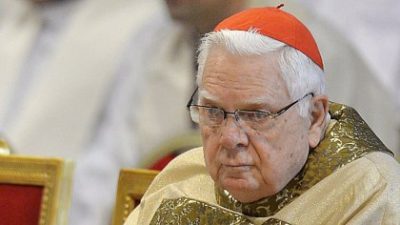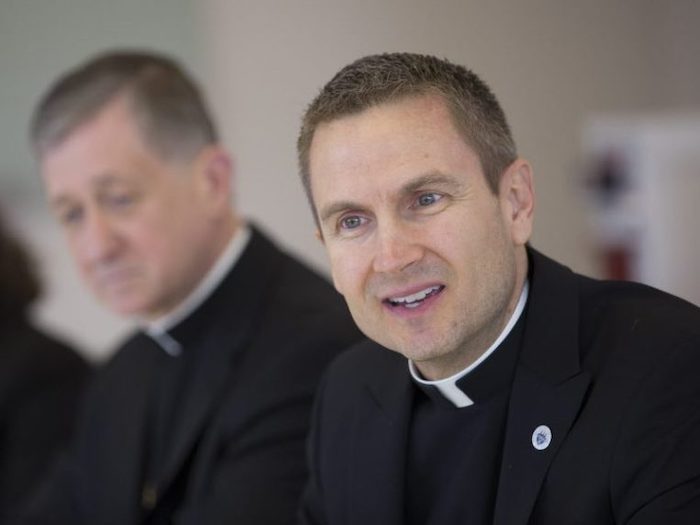File under: Are you freakin’ kidding me? Insulated, monolithic, callous, tone deaf church power structure!
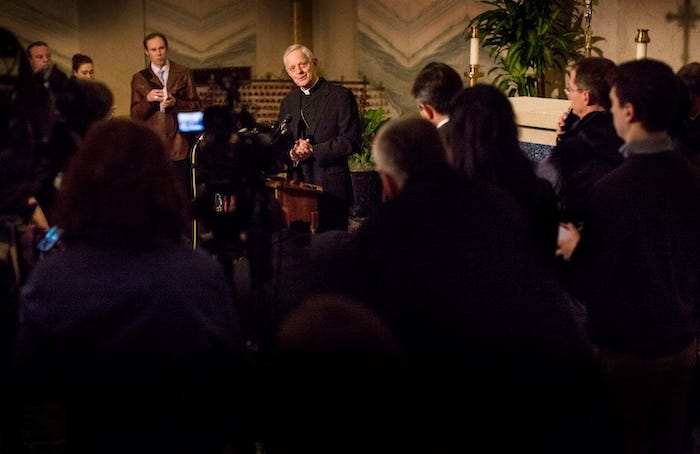
D.C.’s embattled Catholic leader, Donald Wuerl, under fire in recent days for untruthful statements regarding what he knew about the alleged sexual misconduct of his predecessor, Theodore McCarrick, apologized late Tuesday, saying he forgot he knew about the allegations and that it was “never the intention to provide false information.”
Wuerl apologized to former priest Robert Ciolek in the evening and then sent a letter to the priests of the archdiocese, where Wuerl is the acting administrator. Pope Francis received Wuerl’s retirement as archbishop earlier than expected last fall as the cardinal was being pummeled by criticism over his handling of abuse cases when he was the Pittsburgh bishop, and also by suspicions that he was not being fully honest about what he knew of the McCarrick scandal.
[Cardinal Wuerl’s letter to the priests]
In the letter, Wuerl said he forgot he was told in 2004 about Ciolek’s complaint against McCarrick. Wuerl in 2004 then took the complaint to the Vatican.
The ex-priest, in testimony then to the Pittsburgh Diocese’s Review Board, had said McCarrick pressured seminarians to sleep in double beds with him, requested and gave the subordinate unwanted back rubs and caused Ciolek trauma because he knew that Ciolek had been abused by clergy as a teen.
When Ciolek first went public last week with evidence that Wuerl had been untruthful since the scandal erupted last summer, Wuerl’s office issued a statement saying he had only been trying to protect Ciolek’s confidentiality. Then in a Saturday letter to the archdiocese’s priests, Wuerl repeated his claim that he was protecting confidentiality and said he had denied knowledge only as it pertained to allegations that McCarrick had abused children.
In the Tuesday night letter, Wuerl repeated versions of those defenses but said it didn’t matter.
“Nonetheless, it is important for me to accept personal responsibility and apologize for this lapse of memory. There was never the intention to provide false information,” the letter said.
He noted he had apologized to Ciolek, whose requests to meet Wuerl were rebuffed for several weeks prior. Ciolek had asked repeatedly to meet but was told no after negotiating with the archdiocese’s lawyer, who had suggested limits on the talk, such as no “interviewing” Wuerl, no recording and no note-taking, Ciolek told The Post. This was in the days before Ciolek went public with the fact that Wuerl knew in 2004.
“I wanted to apologize for any additional grief my failure might have also brought the survivor,” he wrote.
Ciolek Wednesday said he was up much of the night pondering what he said was a 45-minute talk with Wuerl. He wanted to take the call, he said, because he was still “holding out hope” that Wuerl would offer a frank admission and apology that would help heal Ciolek and restore some of Catholics’ distrust.
“In the end, it’s lacking in truth and substance. I do not believe for one moment that he forgot. I do not,” he said. Wuerl expressed what Ciolek called sincere sorry and regret for the clerics who abused and harassed him. “But substantively it doesn’t all add up. He’s shown himself to be better at expressing sorrow for actions of others. But he remains unable or unwilling to ackowledge the truth of his own actions.”
The married lawyer reached a settlement in 2005 with several New Jersey dioceses over abuse and harassment he says he suffered by three clerics as a teen and then in seminary. One of them was allegedly McCarrick.
The reaction of the D.C. Catholic community, weary after six months of scandal alleged by their current and last archbishops, wasn’t easy to predict.
Wuerl over the years was seen as an efficient and moderate, if bureaucratic, leader of the healthy, diverse archdiocese — until last summer, when McCarrick was suspended after allegedly groping an altar boy and questions arose about widespread rumors that McCarrick had been sexually harassing seminarians for years. Wuerl was also painted in a report by a Pennsylvania grand jury as not fully reliable in his handling of sex abuse. The report looked at hundreds of clerics.
A Washington Post investigation about the grand jury report found that while Wuerl built a reputation as an early advocate for removing pedophile priests from parishes, at times he allowed accused clerics to continue as priests in less visible roles without alerting authorities or other officials.
[Why don’t Catholic leaders who screw up just say they’re sorry?]
Wuerl’s apology comes at a key time. The Vatican is hoping to wrap up things related to the D.C. scandals before a first global meeting next month about clergy sex abuse and how to hold bishops and cardinals more accountable. Allegations that McCarrick abused several children and harassed many seminarians are being heard by a Vatican administrative trial, and some church lawyers think he might see his priestly status stripped. It’s possible Francis will decide a penalty, if any, for McCarrick. Wuerl’s successor is also to be named.
While Wuerl’s denials have centered on his claim that Ciolek requested confidentiality, documents from the time challenge the cardinal’s framework.
In 2004, Wuerl’s office asked Ciolek for permission to take his complaint about McCarrick to the Vatican. Ciolek wrote back that he would be fine with that but to please keep his name out of it, if possible. Either way, Ciolek wrote in approving the specific request, he was fine with his experience being told to church officials.
The Pittsburgh and D.C. dioceses in the past week have said this proves Wuerl was unable to come forward. But Ciolek’s 2004 request for his name to be kept out of it was specific to the request made by Pittsburgh. Church officials never asked him again for permission to speak publicly about his allegations, even in a general way, without his name. Wuerl issued several denials about having heard even rumors about McCarrick, even after Ciolek went public in July about his experience.
“Were you aware of rumors Cardinal McCarrick was having relationships with other priests?” CBS asked Wuerl in August. “No, no,” he says.
Complete Article ↪HERE↩!

